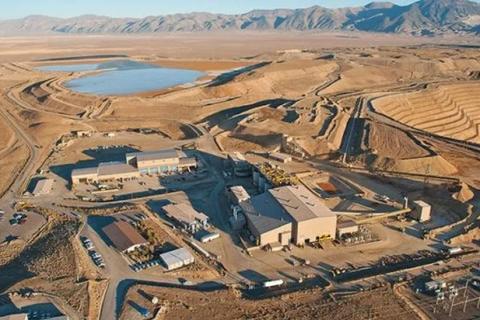Mining companies were shocked by a 'Recommendation' passed by the World Conservation Congress in Amman in 2002, which called for an end to oil, mining and gas extraction from all protected areas in IUCN categories I, II, III and IV ('strict nature reserves', 'wilderness areas', 'national parks', 'natural monuments' and 'habitat management areas'). Many NGOs were equally surprised by the mining industries' reaction: what did the companies think these areas were meant to be protected from if not from unsustainable activities like mining?
Bulletin articles
A new report from the Forest Peoples Programme and the TebTebba Foundation calls on the World Bank to drop its support for oil, gas and mining. The report 'Extracting Promises: Indigenous Peoples, Extractive Industries and the World Bank' was compiled as a contribution to the World Bank's Extractive Industries Review (EIR) (the full report and associated case studies can all be found on: http://www.forestpeoples.gn.apc.org/Briefings/Private%20sector/
eir_internat_workshop_synthesis_rep_eng_may03.htm ).
Mining is a short-term activity with long-term effects. There can be no doubt that when it takes place in forest zones, it is a factor of degradation. It is calculated that, together with oil prospecting, mining is threatening 38% of the last stretches of the world's primary forests.
While the bombs still fall, the military tanks roll on, thousands of people die, the probable victors are already sharing out the loot. That is what this war was all about. Saddam and his mythical weapons of mass destruction were no more than a not very credible excuse. The whole world knew and still knows it. Both the oil and the lucrative contracts to reconstruct what they themselves destroyed are already in "good" hands.
The United Nations Forum on Forests (UNFF) will be meeting in Geneva from 26 May to 6 June. NGOs and IPOs have expressed some of their concerns to the UNFF secretariat in April this year (see http://www.wrm.org.uy/alerts/april03.html), concluding that "if these points are not addressed soon, the UNFF will lose its credibility with civil society groups and indigenous peoples and subsequently with governments."
The streets of the Patagonian town of Esquel still echo with the celebrations held on the resounding victory of "NO" which obtained 81% of the non-binding plebiscite held on 23 March. The monstrous governmental-company propaganda machinery was unable to convince the population to give its support to the exploitation of a gold and silver mine, located some 6 kilometres from the town. The most important town in the Chubut cordillera, inhabited by some 30 thousand people, said NO, and Mining Argentina trembled.
In Minas Gerais during the last week-end in March, more precisely during the night of Friday 28 a deposit for chemical products belonging to the paper mill "Industria Cataguazes" collapsed. The mill, close to the city of Cataguazes, is located on the Pomba river, where millions of litres of caustic soda, chlorine and other toxic products used in making paper leaked out.
In spite of the fact that it is one of the country's most wretched zones, the Valley of Jequitinhonha in Minas Gerais has been the main and paradigmatic goal of the "citizen caravans" of the candidate Lula --in more than one of his presidential campaigns-- and one of the zones chosen to play the new government's strong card --the Hunger Zero plan-- it is odd to note that nothing has been said about the concrete reason (in addition to generic reasons due to socio-economic and perhaps political underdevelopment) that has led this part of the territory of Minas Gerais to such a degraded and ec
The Dja Faunal Reserve in South Central Cameroon was created in 1950 by the French High Commission for Cameroon. In 1981 it was named a UNESCO Biosphere Reserve and in 1987 it became a World Heritage Site. Since 1992 the reserve has been managed by the EU-funded ECOFAC programme, which has been supporting the establishment of a network of protected areas across Africa.
In 1925 King Albert 1st of Belgium created a Protected Volcano Zone covering present Rwanda and the Democratic Republic of Congo, and this later became Albert National Park. In 1960 Albert Park was split into the Virunga Park, and the Parc des Volcans in northwest Rwanda. Both are important ecotourism sites due to their populations of endangered mountain gorillas.
Residents south of the Matsapha Industrial Estate, where the nation's manufacturing sector is based, recently complained of ailments resulting from the consumption of "poison" water from the Lusushwana river. The river is clean when it flows out of Mantenga Nature Reserve, but then it passes through the Matsapha industries where its colour changes, according to residents who depend on the river for their water needs. "It is brown one day, grey the next," said Thab'sile Dlamini, who lives in an informal settlement that has sprung up along the riverbank.
Recently, a joint venture company between Heritage Oil & Gas --a subsidiary of the Canadian-based Heritage Oil Corp-- and South Africa's Energy Africa have announced the preliminary results from trial drilling. The exploration for oil has been going on for some time now near the country's western border and the results point to billions of barrels' worth of oil deposits along the western arm of the East African Rift Valley in the Semliki.

